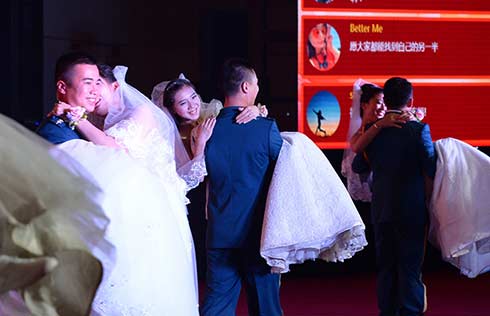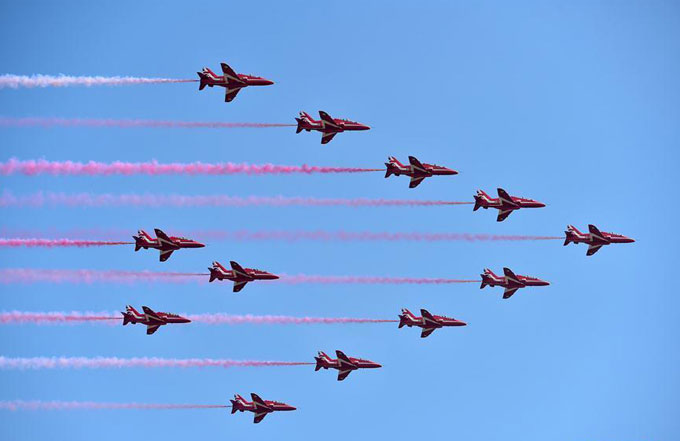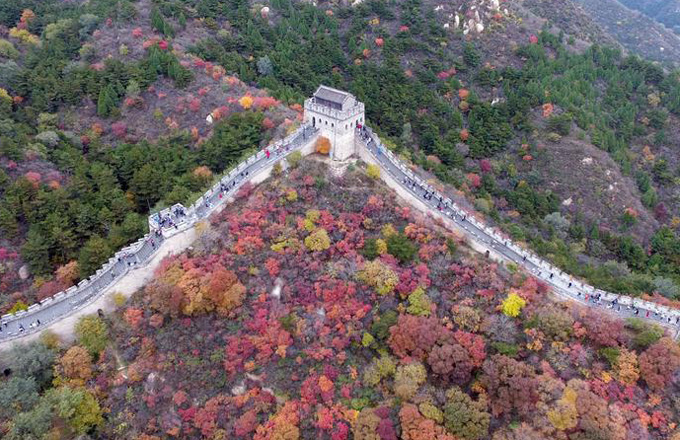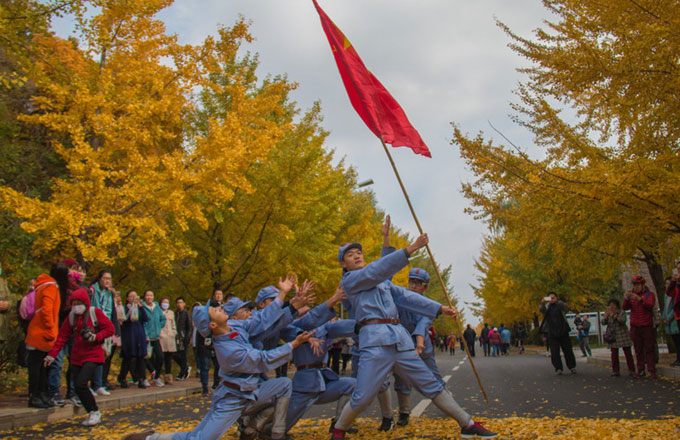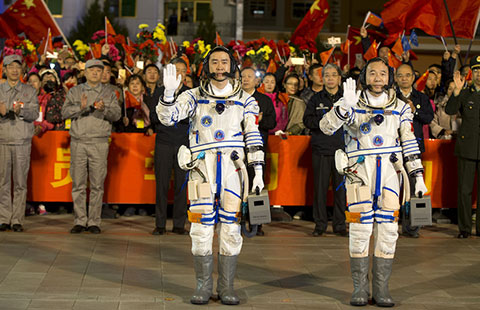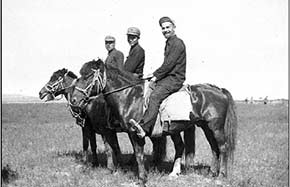Interview: European ex-astronaut applauds progress, advises peers in China's manned space program
PARIS - The steady progress of China's manned space program has been very impressive and it is hoped that international cooperation on space exploration will be further expanded and deepened, Claudie Haignere, an adviser to the director general of the European Space Agency (ESA), has said.
In a recent interview with Xinhua, Haignere, the first European female astronaut to visit the International Space Station (ISS), said she has been paying close attention to the progress of manned space technology in China for years.
Haignere also become the first astronaut from the West to talk over the phone with a Chinese peer following her conversation with Yang Liwei, China's first astronaut who traveled to space in 2003 on the Shenzhou-5 spacecraft.
"Since 2003, every step forward of China's manned space program has impressed me deeply, from the launch of the first manned spacecraft to the first multi-manned space flight of Shenzhou-6, from sending China's first female astronaut to space to the docking of a manned spaceship with Tiangong-1," Haignere said.
Now that the Tiangong-2 space lab has been successfully launched, its docking with Shenzhou-11 can be expected soon, she added.
"How marvelous it is for China to realize all these in such a short period of less than 15 years," said the French ex-astronaut.
With the deepening of space exploration in recent years, it has been the consensus of major aerospace countries that international cooperation in this regard should be strengthened.
In June, Chinese astronaut Ye Guangfu completed an underground training mission in Sardinian caves together with five other prospective astronauts from Japan, Russia, Spain and the United States during the ESA training course.
It is anticipated that more cooperation on manned space missions among different countries will be conducted as international cooperation on space exploration has been centered on science and research to date, Haignere said.
"I'm especially interested in this aspect," Haignere said. "The current ISS is running on the near-Earth orbit about 400 kilometers away from the Earth's surface, yet we all imagine that one day mankind can realize longer-distance manned space flights, to the Moon or Mars."
"If one day we can realize that goal, I hope it's through extensive international cooperation, and the first crew shall be composed of European, US, Russian and Chinese astronauts," she added.
Talking about China's Shenzhou-11 manned spacecraft which is scheduled to be launched on Monday, the French ex-astronaut wishes the two Chinese astronauts good luck and the smooth fulfillment of scientific tasks.
She suggested the two astronauts set some time aside from their long working hours so that they can fully experience this space journey.
"Please carefully explore your body and movement changes in the environment of microgravity. Please look at the Earth and the universe through the window more often, and share all these experiences with people, especially kids, after you return to Earth," Haignere said.
"Upon returning to Earth, young kids are going to ask you all kinds of questions. Answering those questions, sharing your experience with them, inspiring them to be interested in science and technology, this is what every astronaut should do."
Haignere visited the Mir space station for 16 days in 1996 as part of the Russian-French "Cassiopee" mission. In 2001, she became the first European woman to visit the ISS, as part of the "Andromede" mission.
Recalling her two space journeys, she said that the most impressive scenario was the feeling of her body and movement changes in zero gravity.
"Floating in microgravity, you will find that you have a whole new body. How to make your body get used to the new environment was a very interesting thing for me," the former astronaut said.
She suggested the two Chinese astronauts swiftly and completely adjust their spirits and bodies to a brand new state once entering the microgravity environment.
Haignere's time in space hasn't left her with any unpleasant memories.
"Although very complicated situations did occur, that was totally normal and part of the adventure," she said.
"All I needed to do was to try and figure out a solution."
- Facts about the 6th plenary session of the 18th CPC Central Committee
- Palace Museum to build new branch in northern Beijing: curator
- Military blind date attracts hundreds young women to attend
- Britain's Red Arrows arrive at Zhuhai for China air show
- How well do you know world's largest political party CPC?






